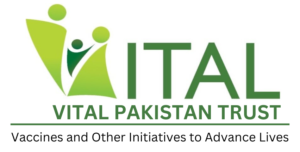EVERY CONTRIBUTION COUNTS
-
Direct Bank Transfer
-
Through Cheque and Pay Order
-
Through Pick-up


Direct Bank Transfer
Bank : Bank Al-Habib Limited
Account Name : Vital Pakistan Trust
Account NO : 1262-0071-022548-02-9
IBAN NO : PK74BAHL1262007102254802
Bank : Bank Al-Falah
Account Name : Vital Pakistan Trust
Account NO : 0670-1008-0694-64
IBAN NO : PK12ALFH067000100806946


Through Cheque and Pay Order
Bank : Bank Al-Habib Limited
Account Name : Vital Pakistan Trust
Account NO : 1262-0071-022548-02-9
IBAN NO : PK74BAHL1262007102254802
Bank : Bank Al-Falah
Account Name : Vital Pakistan Trust
Account NO : 0670-1008-0694-64
IBAN NO : PK12ALFH067000100806946
Through Pick-up
Account Name: Vital Pakistan Trust
Email : giving@vitalpakistantrust.org
Phone : 0304-8245165 | 0302-8240100
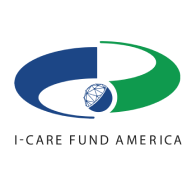
Donate from the US- Give I-Care
Donors can send funds to VITAL Pakistan via I-Care
DONATE VIA I-CARE

Direct Bank Transfer
Bank : Bank Al-Habib Limited
Account Name : Vital Pakistan Trust
Account NO : 1262-0071-022548-02-9
IBAN NO : PK74BAHL1262007102254802
Bank : Bank Al-Falah
Account Name : Vital Pakistan Trust
Account NO : 0670-1008-0694-64
IBAN NO : PK12ALFH067000100806946


For Zakat
Bank : Bank Al-Habib Limited
Account Name : Vital Pakistan Trust
Account NO : 5001-0081-026182-01-8
IBAN NO : PK36BAHL5001008102618201
Bank : Bank Al-Falah
Account Name : Vital Pakistan Trust
Account NO : 5512-5002178967
IBAN NO : PK47ALFH5512005002178967
Give Online
-
General Donation Fund
-
Support for women and children
-
Midwife Support Programme
-
Sponsor a Clinic
-
Medicine Support
-
Ultrasound Scan
-
In Kind Donations
General Donation Fund
-
Support 1 set of woman and child for 2 years
-
Support 3 sets of women and children for 2 Year
-
Support 5 sets of women and children for 2 Years
Support 1 set of woman and child for 2 years
Donate NowSupport 3 sets of women and children for 2 Year
Donate NowSupport 5 sets of women and children for 2 Years
Donate NowMidwife Support Programme for 2 years
Donate NowSponsor a clinic For Two Years (With Naming Rights)
Donate NowMedicine Support
-
General Amount
-
3 Ultrasound Scans for 1 Woman
-
3 Ultrasound Scans for 3 Women
-
3 Ultrasound Scans for 5 Women
General Amount
3 Ultrasound Scans for 1 Woman
Donate Now3 Ultrasound Scans for 3 Women
Donate Now3 Ultrasound Scans for 5 Women
Donate NowIn Kind Donations
DONATE GENEROUSLY TO VITAL PAKISTAN TRUST
By donating Rs. 55,000, you can be part of a woman and child’s 1000-day journey with VITAL Pakistan Trust.
REASONS TO TRUST US WITH YOUR ZAKAT

100% of Zakat Collected is spent on deserving patients

PCP Certified

Tax-exemption status granted by FBR

Shariah-compliant zakat collection & spending
SHARIAH COMPLIANCE CERTIFICATE:
VITAL Pakistan Trust is a not-for-profit organization that operates in accordance with Islamic principles and laws, thus building a heightened level of confidence among those that choose to contribute financially to the organization. This is achieved by implementing Shariah-compliant policies and procedures that ensure the trustworthiness of the Trust and its services.


Compliance

Alhamd Shariah Advisory Services (Pvt.) Limited is a Pakistan-based Shariah-compliant financial advisory firm that provides Shariah advisory, consultancy to financial institutions, and businesses seeking to operate in accordance with Islamic principles.
View

Certified

FBR is the central revenue collection agency of Pakistan responsible for enforcing fiscal laws, collecting taxes, and promoting tax compliance. Its aim is to facilitate economic growth by ensuring a fair and efficient tax system in Pakistan.
View

Certified
![]()
PCP’s main objective is to develop a culture of giving and social responsibility in Pakistan by providing various services to individuals, corporations, and non-profit organizations. These services include capacity building, research and advocacy, certification, and recognition of philanthropic organizations.
View

Certified
![]()
NGOsource is a project of TechSoup Global and the Council on Foundations, designed to streamline the process of international grantmaking. It provides equivalency determinations (EDs), which certify that a non-U.S. NGO is equivalent to a U.S. public charity.
View

Certified
![]()
The Directorate of Industries and Commerce Sindh (Karachi) is a government body overseeing industrial and commercial activities, ensuring compliance, and supporting economic growth in Sindh.
ViewOUR SERVICES

Child Immunization
Child immunization is the process of protecting a child against diseases through the administration of vaccines. Vaccines work by introducing a weakened version of a disease to the body, which stimulates the body’s natural immunity and prepares it to fight the disease if it is encountered in the future. Immunization is usually done in childhood because children are most vulnerable to infectious diseases.

Malnutrition Treatment & Prevention
Malnutrition treatment includes eating a balanced and nutritious diet, consuming adequate calories and protein, taking supplements, and receiving medical treatment.

Child OPD
Child OPD is referred to outpatient diagnosis and treatment of pediatric conditions and illnesses. These services include physical examinations, vaccinations, developmental assessments, and other medical care for children.

Family Planning
Family planning is the practice of controlling the number of children in a family and the intervals between their births, particularly by means of contraception or voluntary sterilization. This is often done to ensure that the family can adequately provide for each child and have sufficient resources.

Care During Pregnancy & Delivery Services
Care during pregnancy and delivery services refer to the medical care, counseling, and other health services that pregnant women receive throughout the duration of their pregnancy and during labor and delivery. This usually includes pre-natal care, labor and delivery, post-natal care, and newborn care. It is important for pregnant women to receive quality care before, during, and after their pregnancy to ensure the health of both the mother and the baby.
TALES OF CHANGE
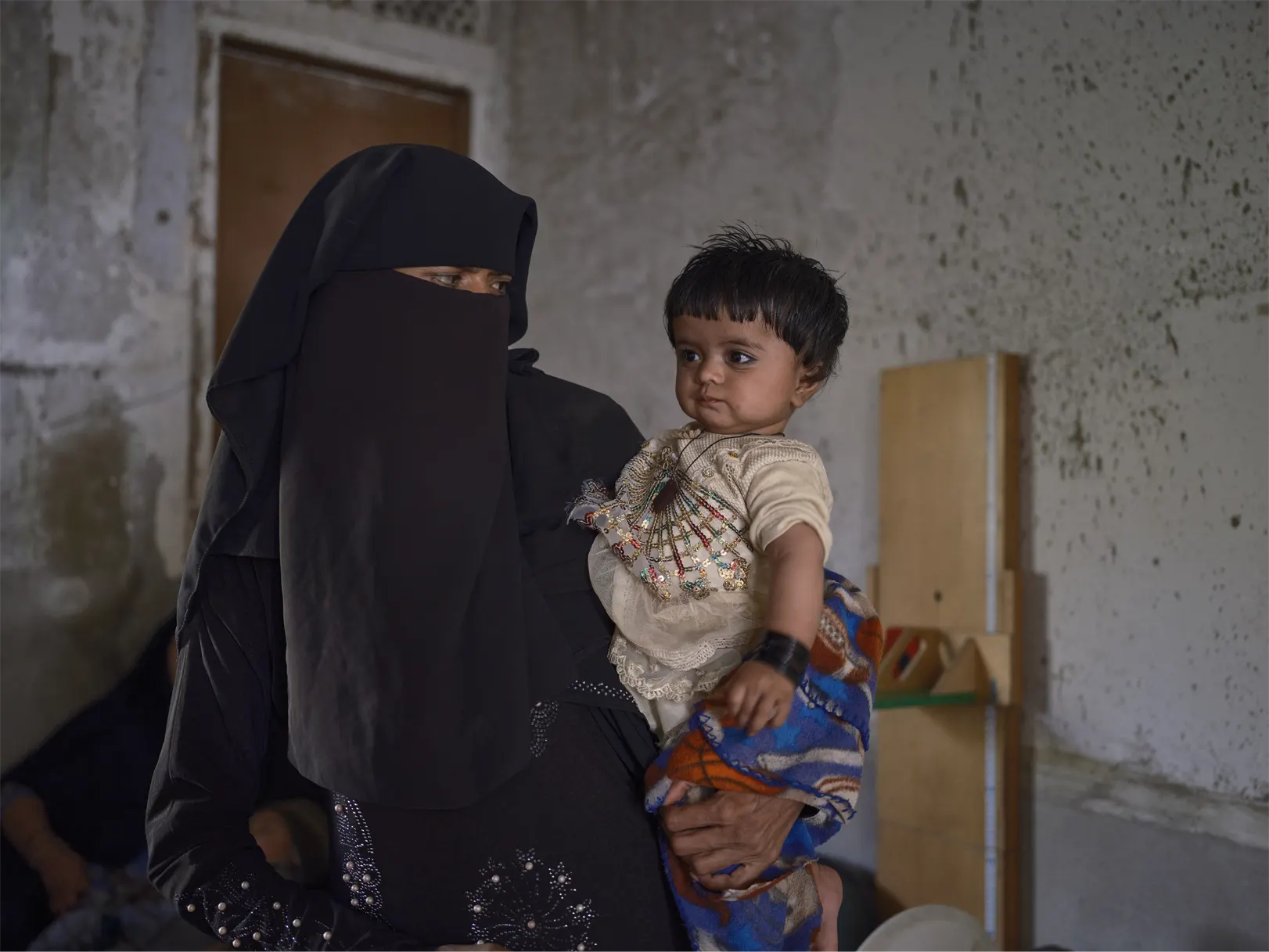
GONJAL
MOTHER OF OBSTETRIC PATIENT AT VPT CLINIC
I had a great experience at Vital Clinic when I was registered there for my last pregnancy, and my son was born healthy and strong. Now, I am here as an attendant for my 18-year old daughter, who recently got married and moved away to an undeveloped community. She had a miscarriage, but was unable to get medical help. I brought her here because I trust the professionals at Vital Clinic to take care of her recovery. I have also made her husband understand the importance of having hospital deliveries, so she will be registered here for her future pregnancies.
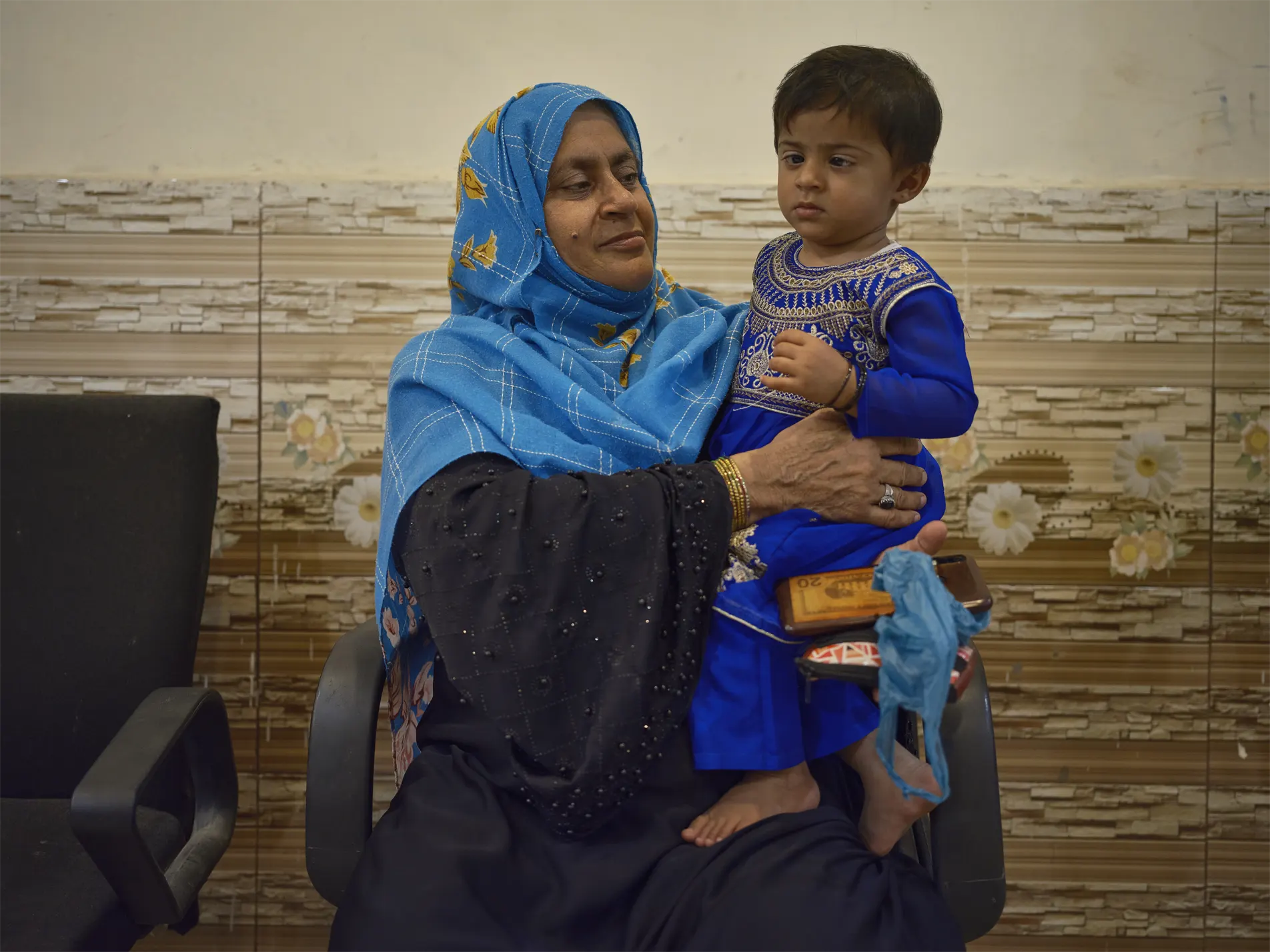
SAJDA RAHIM
OBSTETRIC PATIENT AT VPT CLINIC
I am overjoyed and so thankful for the excellent healthcare services I am receiving at VPT Clinic, as this is my fifth pregnancy but my first experience as a registered obstetric patient. I have finally found a secure haven, as my first three children were born at home and delivered by my mother-in-law. However, my fourth child was born during the peak of the Covid pandemic, and I had contracted the virus ten days prior to the delivery. Due to the fear and trepidation of the situation, I was unable to receive treatment for the infection, and my daughter was born with a high fever and signs of chest infection. This traumatic experience led me to choose a clinic for my current pregnancy, instead of opting for a home delivery, as my in-laws now understand that health and safety must always come first for me and my child.
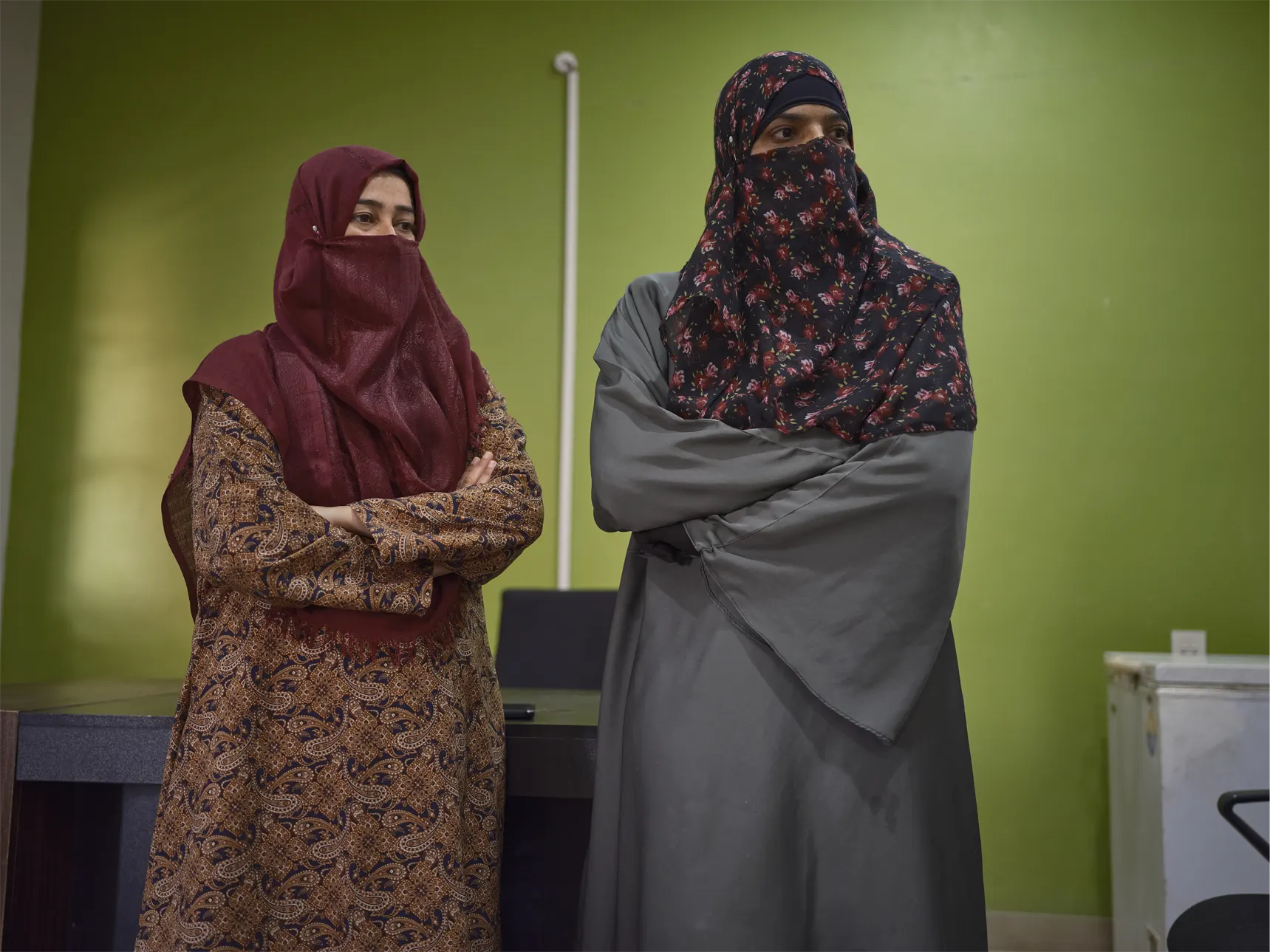
SHAHANA SHAFI AND FOUZIA
Data Collectors and Immunization Team
It is often difficult for me in my role as a Family Planning (FP) Consultant to introduce the concept of FP to newly married couples due to a lack of understanding of what it is, fear of contraceptive methods, and reluctance to consider FP due to religious or family/societal pressures. It takes many counseling sessions and determination to explain the importance of having a three-year gap between pregnancies, both for a woman’s reproductive health and for the economic benefit of the entire family. I have seen a positive shift in attitude, with women now asking for more information on intra-uterine devices and progestin injections to delay pregnancy, where before they were unfamiliar with even basic condoms.

